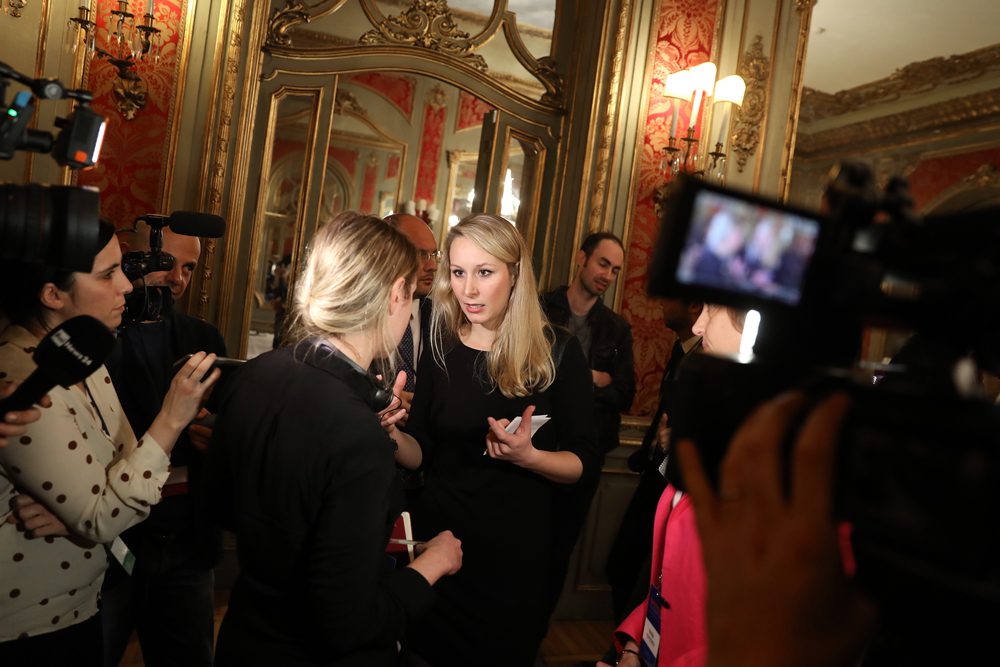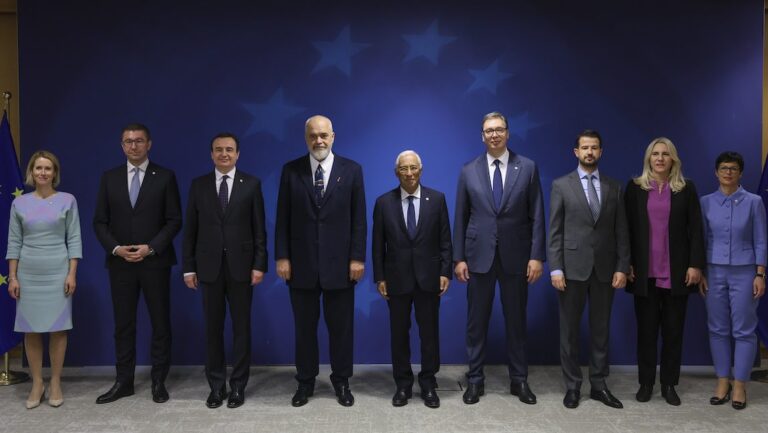The rumour had already been circulating for a few days, or even weeks, but it became official on Monday, May 9th: the former Front National MP Marion Maréchal, who had joined the Reconquête movement founded by Éric Zemmour, will not be a candidate for the legislative elections for this party.
When she rallied to Zemmour’s party at the end of January, Marion Maréchal had dropped hints about her political intentions in interviews given to Le Parisien and Le Figaro. She confided in them about her “desire to return to politics,” after several years of withdrawal devoted to the launch of her higher education institution in Lyon, the Institute of Social, Economic and Political Sciences (ISSEP). At the time, she explained that she had set her sights on the legislative elections, even though family constraints—being pregnant, with a due date of June 19th, the same date as the second round of the legislative elections—could make things difficult. Back then, she considered that this did not constitute a definitive impediment, citing as an example the municipal campaign conducted at eight months of pregnancy in Rome by the president of the Fratelli d’Italia party, Giorgia Meloni. She hesitated between running in Vaucluse, in Provence, or in Morbihan, in Brittany, closer to the land of her ancestors.
In the end, Marion Maréchal chose not to force fate. She gave up running in Vaucluse, where she had been elected deputy in 2017. Her decision creates disappointment among her most fervent supporters within the Reconquête party. “We regret it very much,” Bertrand de La Chesnais, coordinator of Zemmour’s party in the department, told France Bleu Vaucluse radio.
The common sense argument, provided by her late pregnancy, allows her to withdraw from the campaign without having to justify politically her choice at length. She retains her place in the party’s organisation chart, where she holds the position of executive vice-president. Nevertheless, questions remain about her exact motivations, as her rallying to Reconquête did not exactly have the expected effect—not for her, nor for the party. Some of those close to her may have reported a feeling of frustration on her part, or of a missed opportunity. Others point to her lack of fighting spirit and her temptation to believe that doors should have opened to her without effort.
Stanislas Rigault, the president of Génération Z—the young activists of Reconquête—will be a candidate in the 2nd constituency of Vaucluse, where a candidate of the Rassemblement National is also running. Marine Le Pen came first in the Vaucluse in the first (29.4%) and second round (52%) of the presidential election. Éric Zemmour received 10.03% of the vote in this department.





